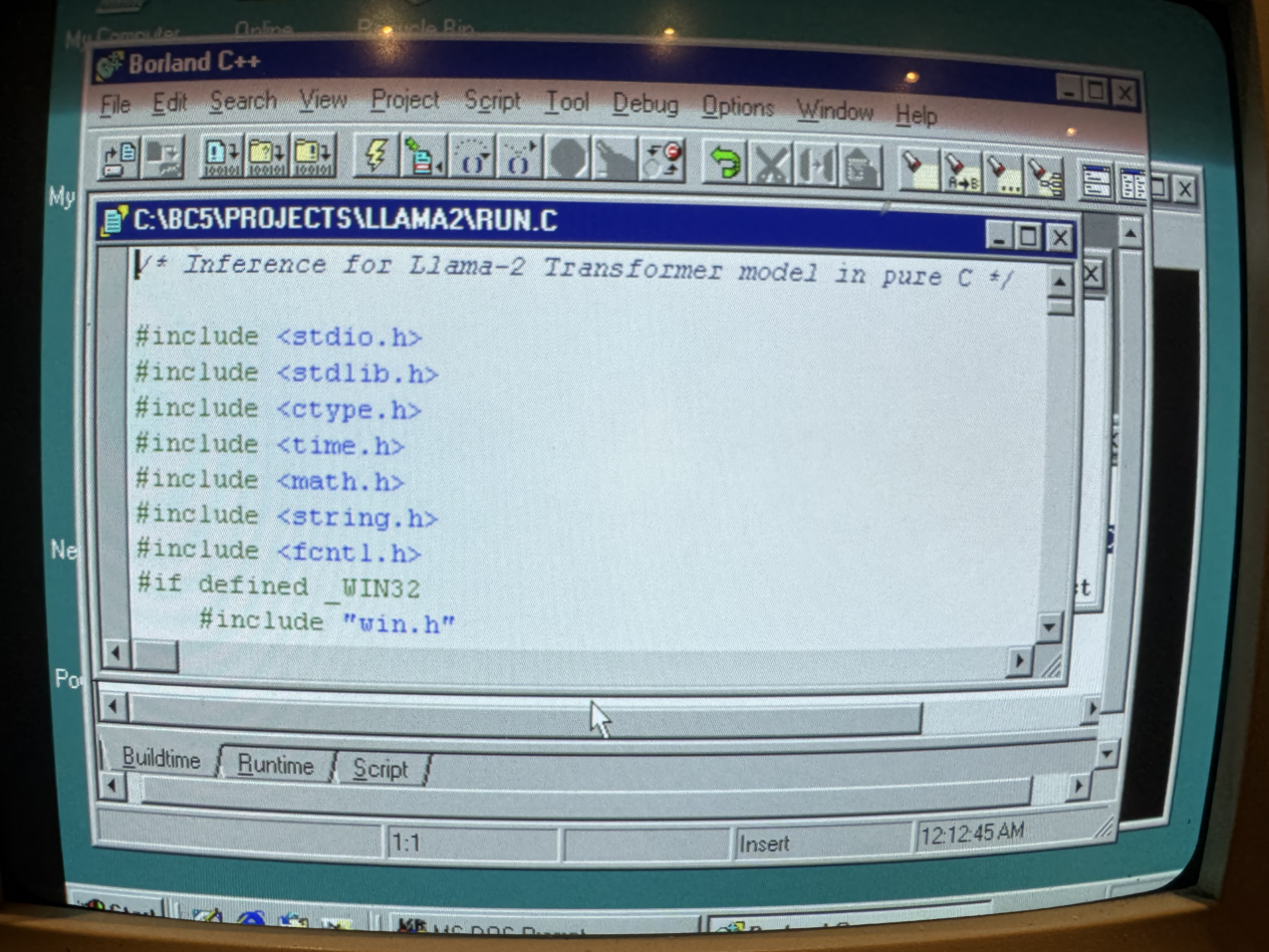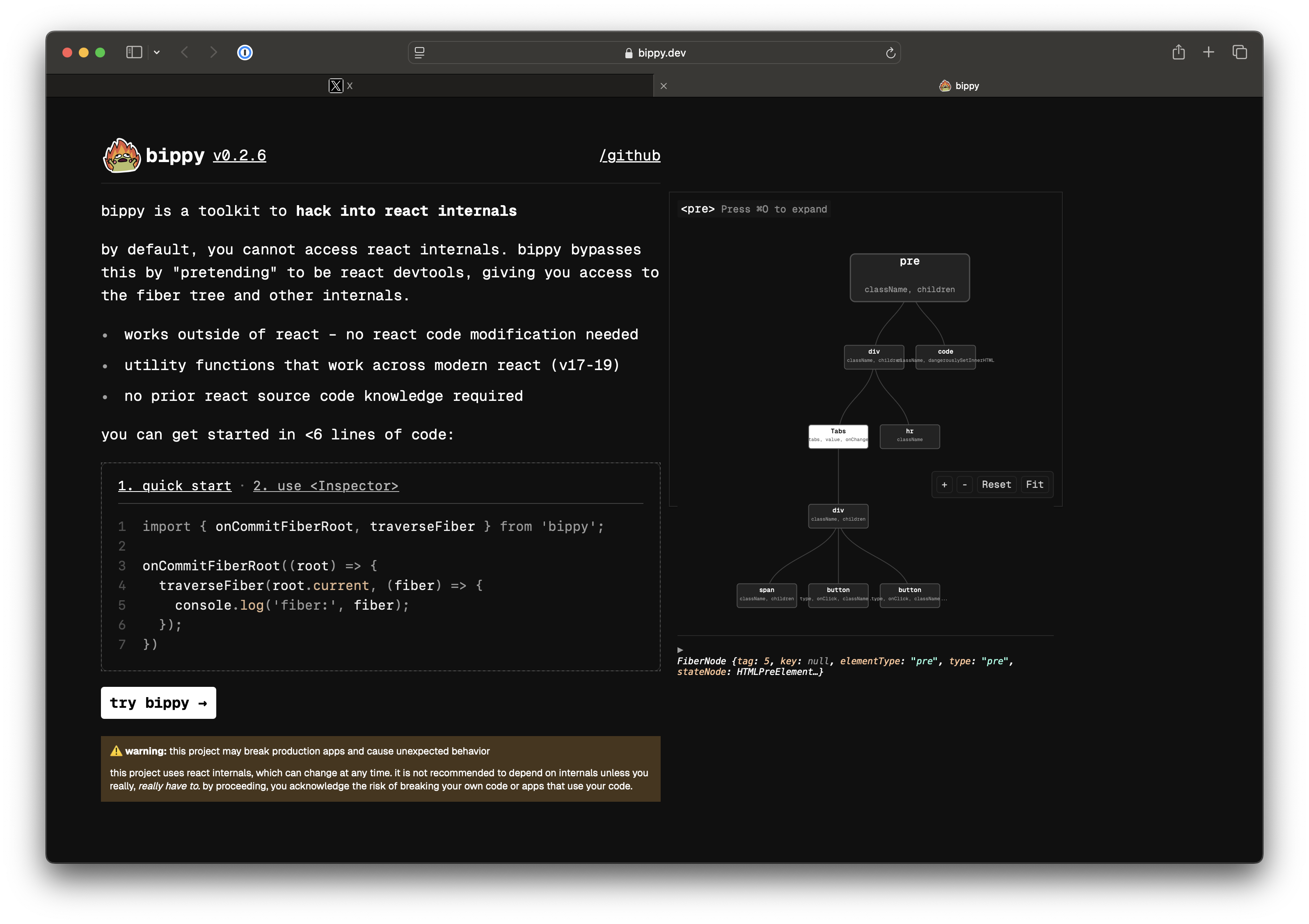Tim Kellogg explains recent rapid developments in AI.
We’re in an era of rapid change.
Observations while developing web applications and creating great software.
Tim Kellogg explains recent rapid developments in AI.
We’re in an era of rapid change.

Alex Cheema at Exo Labs presents llama98.c — a modified llama2.c by Andrej Karpathy that runs on Windows 98.

A few days ago, Alex shared a behind-the-scenes look on how it was made. The thread covers using FTP to transfer model weights and inference code to discovering how to build modern software for Windows 98:
On the topic of compiling for old hardware, Sam D’Amico shared DJGPP — a relatively modern port of GCC and interesting on its own!
React Scan by Aiden Bai automatically detects performance issues in React apps. From the website:
Previously, existing tools required lots of code change, lacked simple visual cues, and didn’t have a simple, portable API
Instead, React Scan:
- Requires no code changes – just drop it in
- Highlights exactly the components you need to optimize
- Available via script tag, npm, CLI, you name it!
React Scan will soon show what props caused a component to render as well:
And allow for recording and replying renders!
Previously: Bippy and React Fibers.
You can visually inspect React trees with a couple lines of code with the excellent Bippy toolkit by Aiden Bai.
import { Inspector } from 'bippy';
<Inspector enabled={true} />
Works with React v17-19!
Previously: Bippy and React Fibers.